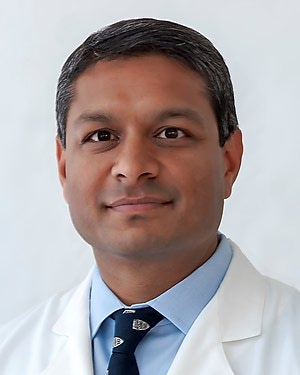Research Lab Results
-
John Aucott Lab
Research in the John Aucott Lab focuses on the development of accurate diagnostic tests for all stages of Lyme disease. We work closely with Dr. Mark Soloski on the Study of Lyme disease Immunology and Clinical Events (SLICE), a longitudinal, matched-control study of patients diagnosed with early untreated Lyme disease. The objective is to use the collected biological samples to help identify novel Lyme disease biomarkers that can inform diagnoses, outcomes and the knowledge about disease pathophysiology.
-
Nicholas Rowan Lab
Dr. Rowan is actively involved in both outcomes and translational research relating to chronic rhinosinusitis and endoscopic skull base surgery. He has a keen interest patient-reported quality of life outcomes as well as those that pertain to smell and taste. Dr. Rowan is also involved in sinus-related clinical trials, pursuing new medical therapies and technological advancements for the treatment of patients with chronic rhinosinusitis.
-
Jonathan Orens Lab
Research in the Jonathan Orens Lab examines topics such as clinical outcomes of lung transplantation, chronic allograft rejection and ischemic reperfusion injury, also known as primary graft dysfunction.
-
Elizabeth Daugherty Lab
The Elizabeth Daugherty Lab conducts research on patient safety, critical care infection control and critical care disaster response. We investigate methods of improving patient safety through improved infection control, with a focus on clinical outcomes, nosocomial infection rates and the individual and organizational obstacles to personal protective equipment adherence.
-
Elizabeth Hunt Lab
Researchers in the Elizabeth Hunt Lab study innovative ways to improve the care quality and clinical outcomes of children who suffer cardiopulmonary arrest. Our work includes implementing rapid-response systems, capturing and analyzing cardiac-arrest data, and redesigning medical devices and simulators. We've introduced novel simulation approaches to education, including data-driven debriefing and the Rapid Cycle Deliberate Practice approach.
Principal Investigator
Department
-
Sanjay Desai Lab
Research in the Sanjay Desai Lab focuses primarily on clinical outcomes in survivors of critical illnesses, such as acute lung injury. We also investigate techniques to improve graduate medical education and are conducting a clinical trial on the comparative effectiveness of models that optimize patient safety and resident education. Our research examines factors such as residency work-hour reform, hand hygiene practices and the use of etiquette-based communication.
-
Brain Tumor Laboratory
At the brain tumor laboratory, Henry Brem, M.D. and Betty Tyler, along with more than 350 trainees, have conducted scientific research, contributed to scientific literature, amended clinical practice, and illuminated new pathways for improving clinical outcomes.
The laboratory has advanced the understanding of gene therapy, angiogenesis, intracranial implantation of biodegradable polymers to treat malignant glioma, tumor genetics and proteomics, microchip drug delivery and drug resistance studies. Dr. Brem and his colleagues have designed and led many multi-institutional clinical trials to improve and expand the range of therapeutic options for patients with brain tumors. -
Mathioudakis Lab
The Mathioudakis lab is focused on developing and evaluating clinical decision support systems, technology, and mHealth for diabetes prevention and management. Our lab leverages large electronic medical record databases and uses machine learning algorithms and artificial intelligence to identify patterns in clinical care associated with optimal clinical outcomes. We are interested in understanding the role that advanced diabetes technologies can play in improving health outcomes for patients with diabetes. Our lab has published extensively on outcomes related to diabetes prevention and diabetes management and outcomes. Based on data from our long-term (over 10 year) clinic-based prospective cohort study from the Johns Hopkins Multidisciplinary Diabetic Foot and Wound Clinic, we have published extensively on clinical predictors and outcomes of patients with diabetic foot ulcers, focusing specifically on the role that glycemic control plays in patients with this complication. Healthcare disparities exist throughout medicine, but are particularly prominent in diabetes; our lab has evaluated healthcare inequities in diabetes outcomes and is developing and evaluating strategies to overcome them. In addition to identify optimal management approach to diabetes and its complications, our lab is interested in development and evaluation of innovative technology approaches to diabetes prevention.


